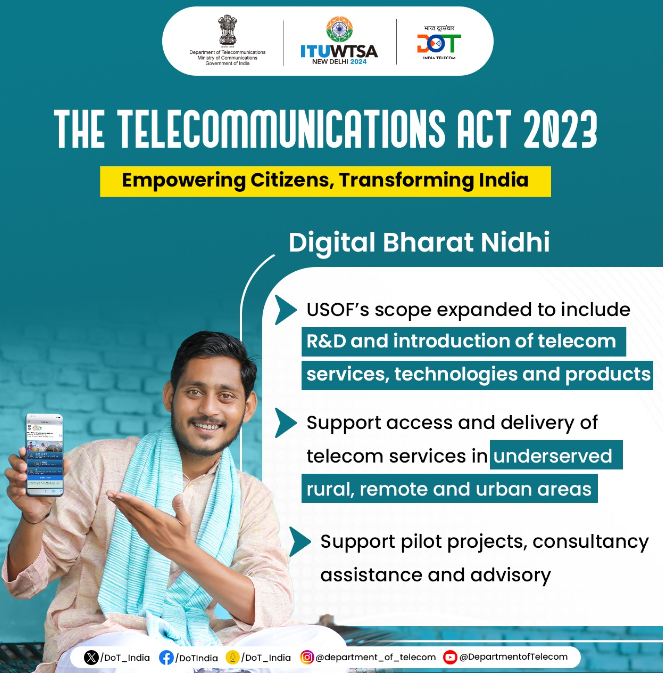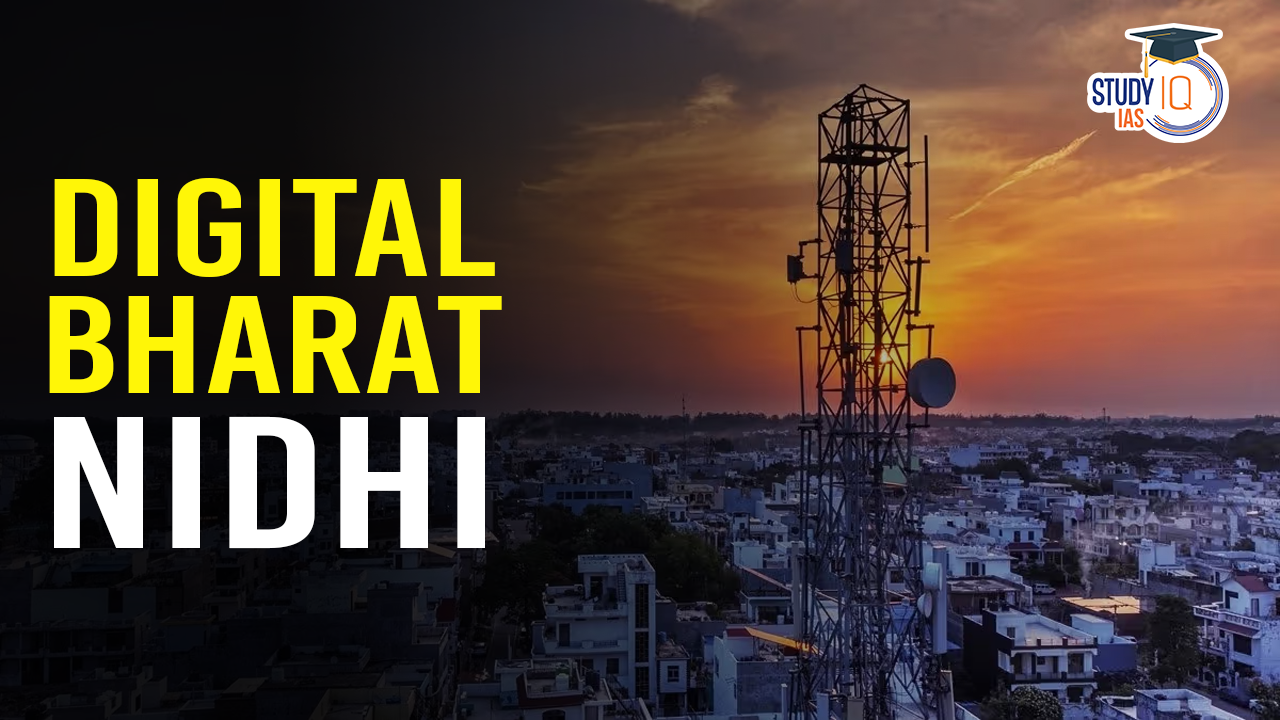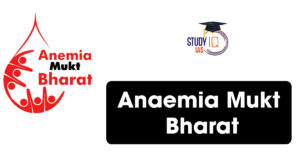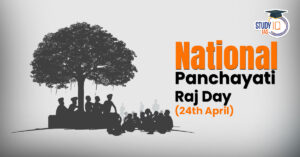Table of Contents
The Department of Telecommunications (DoT) has introduced draft rules to establish the Digital Bharat Nidhi (DBN). This new initiative is intended to replace the Universal Service Obligation Fund (USOF).
What is Digital Bharat Nidhi?
Digital Bharat Nidhi is a pool of funds generated by charging a 5% Universal Service Levy on the Adjusted Gross Revenue (AGR) of all telecom operators. It has replaced the Universal Service Obligation Fund (USOF), which was established under the Indian Telegraph (Amendment) Act, 2003. As per ‘The Telecommunications Act, 2023’, the Universal Service Obligation Fund has become the Digital Bharat Nidhi.
| Background on USOF Utilisation |
|
Details about Digital Bharat Nidhi
- Aim: The DBN aims to support universal access to telecommunication services in underserved areas, along with funding research and development (R&D) in telecom technologies, supporting pilot projects, and introducing innovative telecom services and products.
- Mandate of DBN: To promote access and delivery of telecommunication services in underserved rural, remote and urban areas.
- Administration: An administrator will be appointed to manage the DBN, selecting implementers through competitive bidding or application invitations.
- Funding: Contributions from telecom companies to the DBN are initially credited to the Consolidated Fund of India and subsequently transferred into the Nidhi periodically.
- Funding Modalities: The Nidhi will employ various funding strategies such as full funding, partial funding, co-funding, and providing risk capital, depending on the specific project or scheme.
- Beneficiaries: The focus will be on providing telecom services to underserved groups, including women, persons with disabilities, and economically weaker sections of society.
- Entities that receive funding from DBN are required to share their telecom networks and services openly and on a non-discriminatory basis, adhering to guidelines set forth by the administrator.
Working of the Digital Bharat Nidhi
- Contributions made by telecom companies towards the DBN will first be credited to the Consolidated Fund of India (CFI).
- The Central government will deposit the collected funds into the DBN periodically.
| BharatNet |
|


 Anaemia Mukt Bharat: India’s Fight Aga...
Anaemia Mukt Bharat: India’s Fight Aga...
 World Immunization Week (24 to 30 April)...
World Immunization Week (24 to 30 April)...
 National Panchayati Raj Day (24th April)...
National Panchayati Raj Day (24th April)...






















